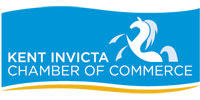The increased cost of doing business is preventing the UK's 5.5m small and medium-sized businesses from taking steps to reduce their carbon footprint, according to new research.
Research carried out by small business lender Iwoca has found that businesses are struggling to prioritise measures to reduce their carbon footprint as core inflation rates reach 6.8%, the highest in 31 years.
The findings indicate that 42% of UK SMEs say that the rising cost of doing business means going green has become "less important". Over half (54%) also believe that while green issues are important, this cannot be at the expense of running their business.
Top five reasons SMEs aren't more environmentally-friendly
- High costs associated with being an environmentally-friendly business (32%);
- Lack of government support or grants (26%);
- Lack of tax incentives (19%);
- Lack of information or resources on how to green their business (14%);
- Worries that they will make less money if they make their business more environmentally friendly (13%).
However, the research suggests that businesses do want to do more, with 61% of small businesses saying that small companies should prioritise reducing their carbon emissions and 53% predicting that their own business will become more environmentally friendly in the next five years.
Small firms and the environment
World Environment Day took place this week on 5 June, highlighting the dangers of global warming. Research by Oxford Economics has found that SMEs contribute 44% of the UK's non-household carbon emissions, with an estimated 160m tonnes of greenhouse gas emitted each year.
Alex Sheard, product manager at Iwoca, said: "This research couldn't be clearer - SMEs want to go green, and understand how important it is, but the current economic environment is a hugely inhibiting factor.
"For the UK to meet its net zero targets, we must not forget about our SMEs, who account for 99.9% of the business population, and generate over 40% of the UK's non-household carbon emissions. From how they invest, how they heat and insulate office and factory spaces, to how their employees travel - going green seems to be a significant operational challenge for SMEs, and access to capital is a crucial component in turning this around."
Written by Rachel Miller.
